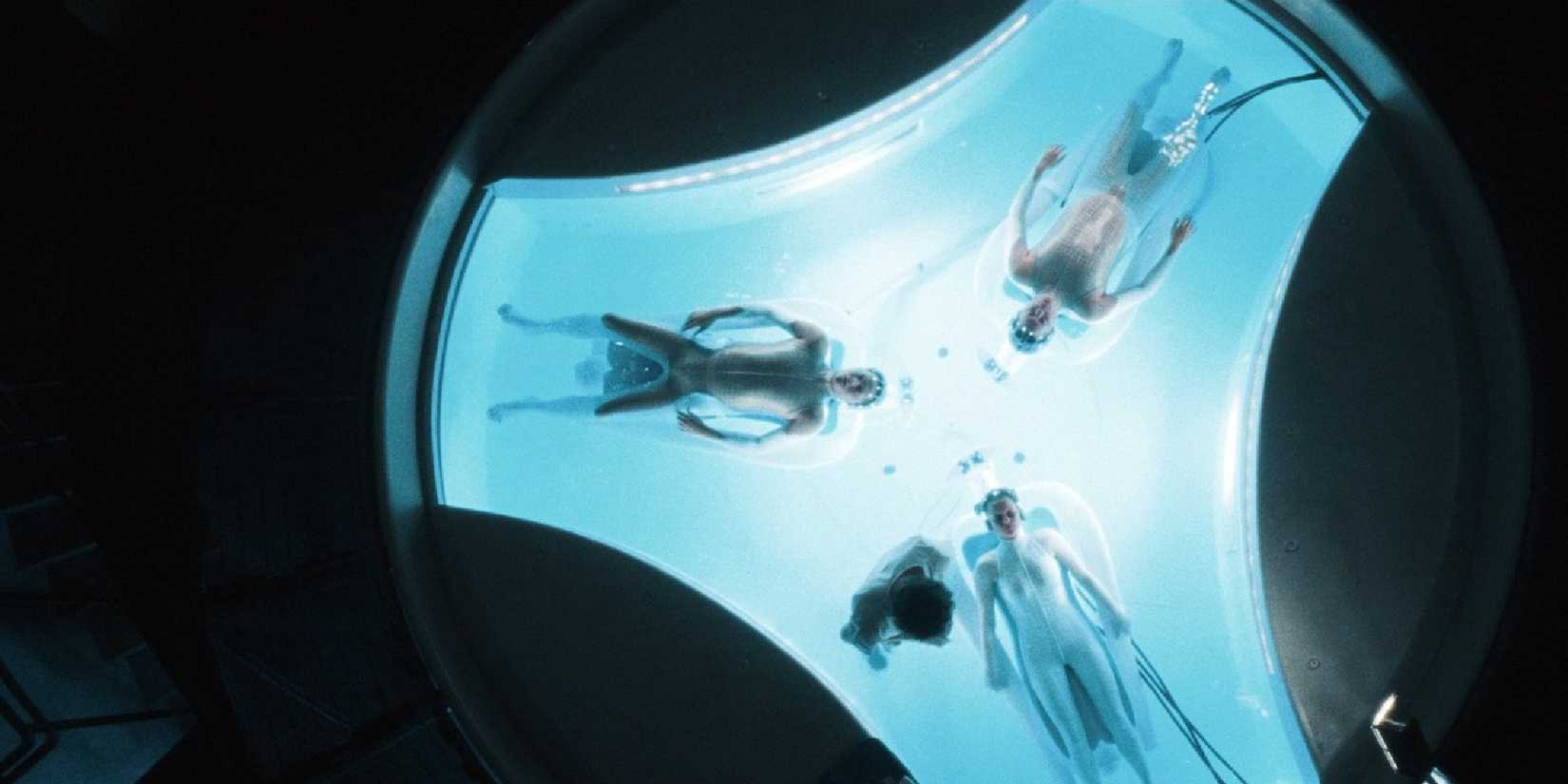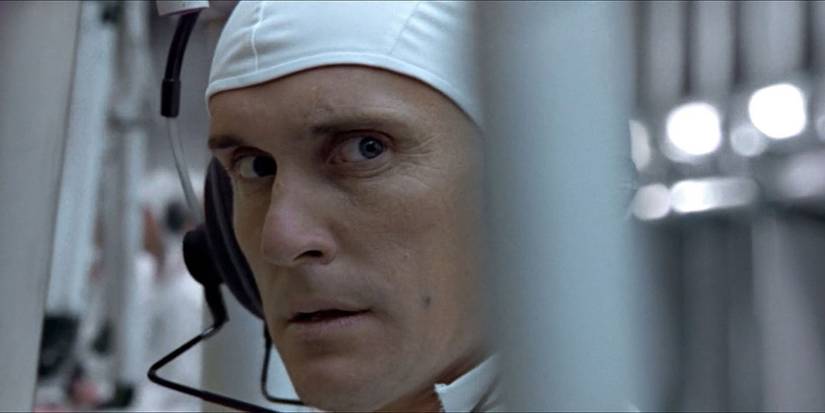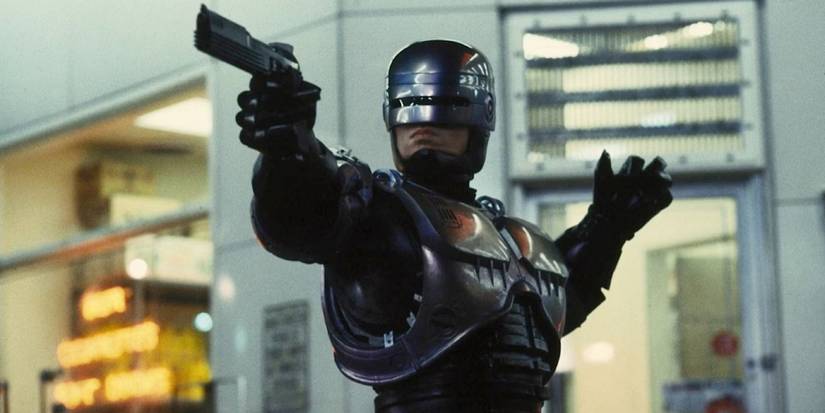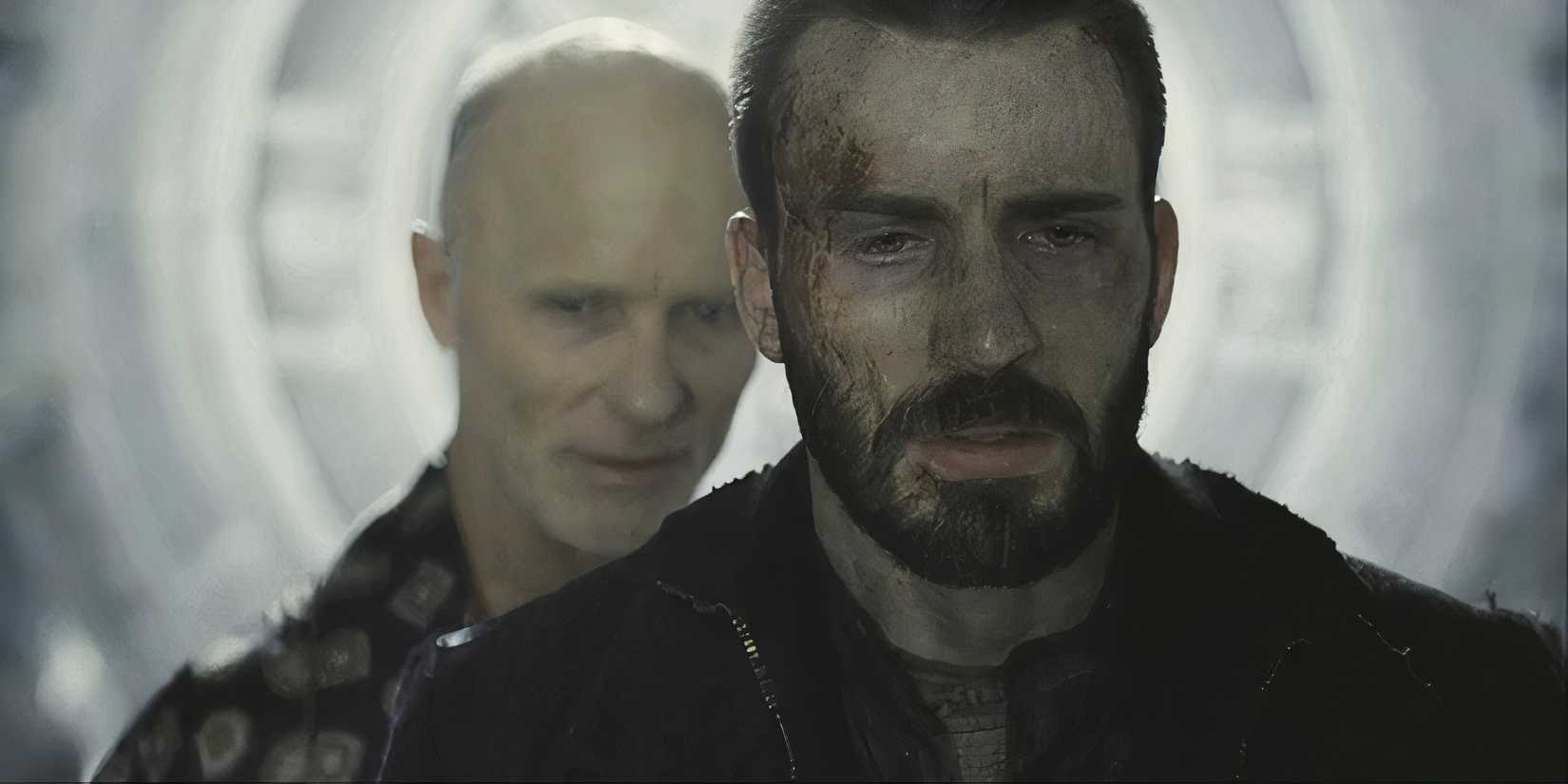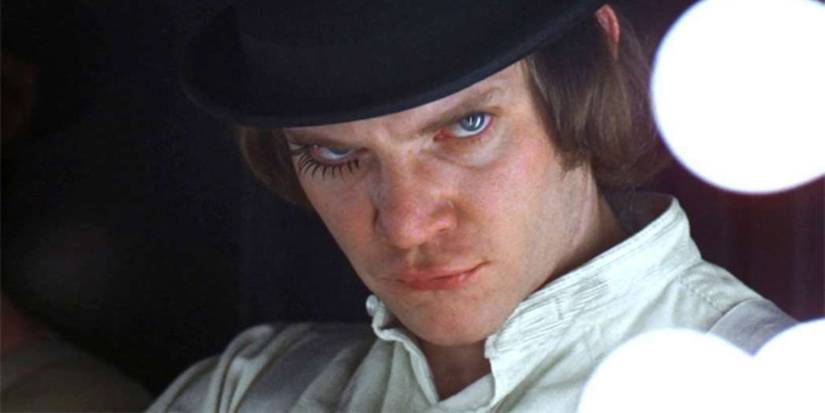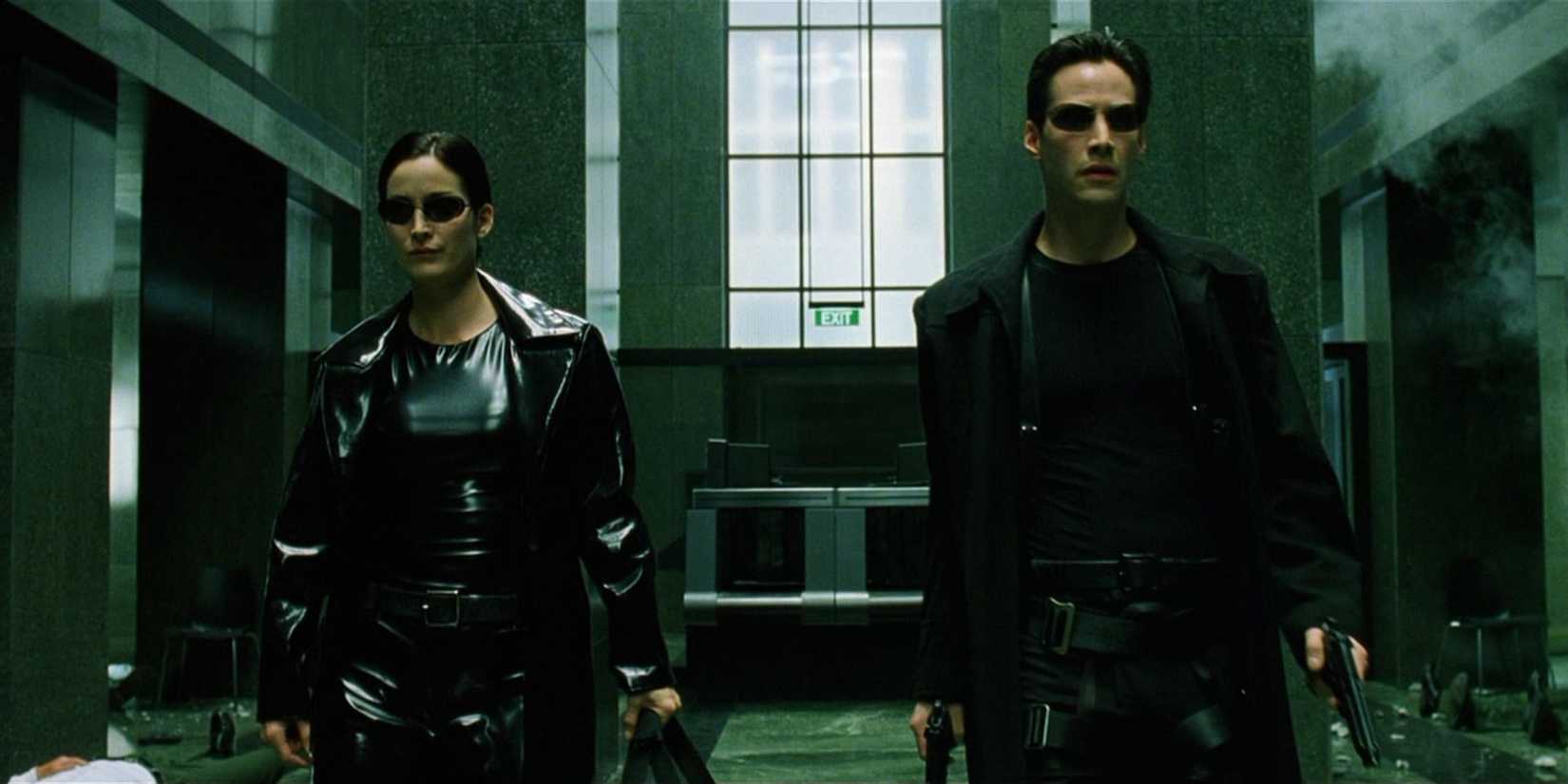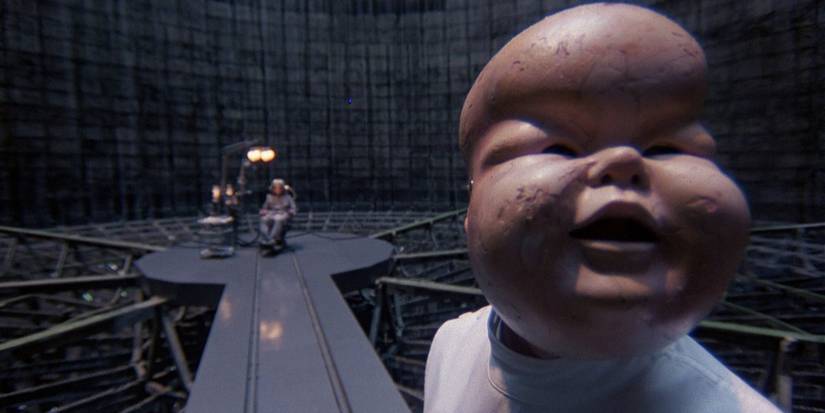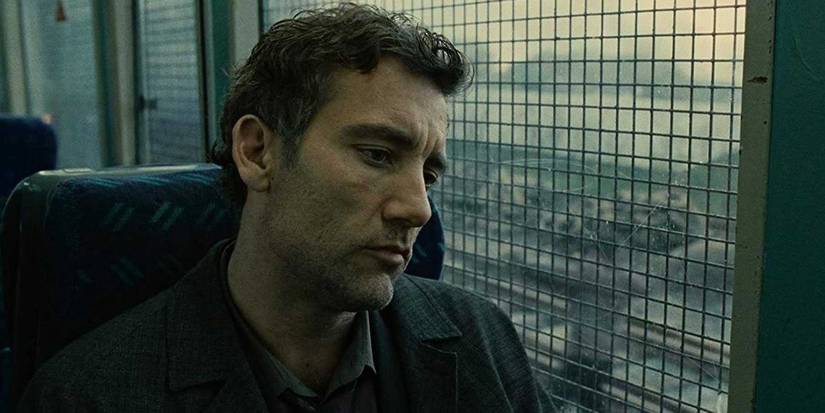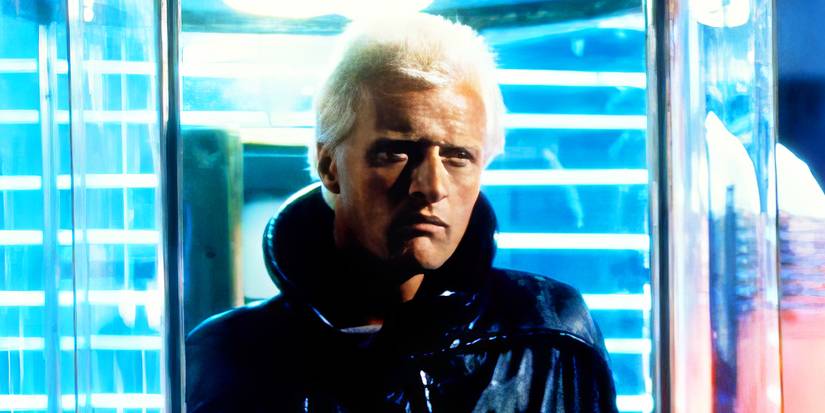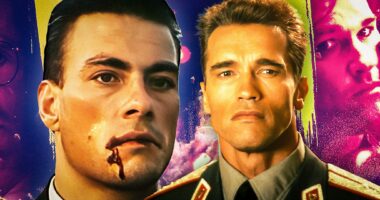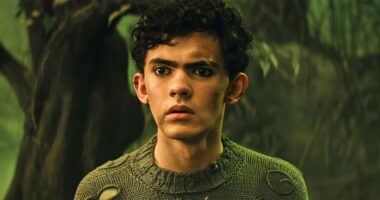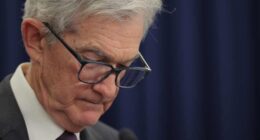Dystopian thrillers are a potent cross-pollination of genres. At their best, they wrestle with our darkest fears around governments, technology, class, and the fragility of human freedom. They might serve as cautionary tales, open our eyes to developing situations that have the potential to worsen over time, or simply provide bleak entertainment aimed at making us feel better about our current situation.
The best dystopian thrillers succeed as both cautionary tales and adrenaline rides, fusing suspense with speculative vision. With this distinct marriage of themes and tones in mind, this list ranks the very best dystopian thrillers ever. The titles below cover a variety of styles and tones, but all use the distant, corrupted future to expose the flaws already lurking in our present.
10
‘Gattaca’ (1997)
“They used to say that a child conceived in love has a greater chance of happiness. They don’t say that anymore.” Gattaca is chilling precisely because it isn’t so far-fetched. It depicts a society stratified not just by wealth, but by genetics. In this world, natural-born individuals are deemed inferior to “valids” who have been genetically engineered for perfection. The protagonist is Vincent (Ethan Hawke), a man born with flaws who dares to dream of becoming an astronaut, defying a system designed to keep him grounded.
Most of the suspense comes from Vincent’s constant risk of exposure. Every step toward his dream could unravel his elaborate deception. Thematically, Gattaca resonates because it asks whether the human spirit can overcome systemic oppression, and whether perfection is truly worth the cost. Decades later, Gattaca is more relevant than ever in an age of genetic science and rapidly advancing gene-editing tools.
9
‘Minority Report’ (2002)
“You see the dilemma, do’t you?” Minority Report fires on two levels at once, working as both a high-octane chase thriller and an exploration of surveillance and free will. Set in a future where “Precrime” technology allows authorities to arrest people before they commit crimes, the story follows Chief John Anderton (Tom Cruise) after he is accused of a future murder. What ensues is a relentless fugitive story, filled with dazzling action sequences and noir-inspired paranoia.
Spielberg creates a future that feels lived-in, from the gesture-controlled computers to personalized advertising that tracks every individual. The visuals are top-notch in a grimy way, but again, it’s the ideas that are the most interesting part. The idea of using AI to calculate whether citizens are “good” or not seems dangerously close to happening anytime now. How long before these governments start taking action based on predictions that people will become troublesome in the future?
8
‘THX 1138’ (1971)
“If you feel you are not properly sedated, call 348-844 immediately.” Before Star Wars, George Lucas made THX 1138, a stark, minimalist vision of the future that remains one of the purest dystopian thrillers ever filmed. Set in an underground society where citizens are stripped of individuality, sedated with drugs, and monitored by faceless authorities, the title character (Robert Duvall) attempts to escape both the system and his conditioning.
Showing hints of the creativity he would later unleash with A New Hope, Lucas uses experimental visuals and sound design to emphasize alienation. The sterile white environments and dehumanized routines create a sense of suffocating control. Though less action-driven than the director’s later work, THX 1138‘s final chase through vast tunnels is genuinely thrilling, a desperate sprint toward freedom in a world that seeks to eliminate it. Fundamentally, this is a dystopia rooted in atmosphere rather than spectacle.
7
‘RoboCop’ (1987)
“Dead or alive, you’re coming with me.” On the surface, RoboCop is a hyper-violent sci-fi action flick about a cyborg policeman cleaning up crime in Detroit. Yet beneath the explosions and gore lies one of the sharpest dystopian satires of the 20th century. In this future, corporations have overtaken government, privatizing law enforcement and treating human life as expendable. (Totally ridiculous, right?) When Officer Alex Murphy (Peter Weller) is brutally murdered and resurrected as RoboCop, he must struggle to reclaim his humanity.
Director Paul Verhoeven is great at smuggling subversive commentary inside pulpy blockbuster packages (see: Starship Troopers). Here, he blends pulse-pounding action with biting corporate satire, complete with fake commercials and news broadcasts. RoboCop entertains as a genre spectacle while cutting deep as a critique of capitalism and dehumanization. It all builds up to a fun, incendiary showdown against both the criminals and the corporate overlords.
6
‘Snowpiercer’ (2013)
“Order is the barrier that holds back the flood of death.” Bong Joon-ho‘s Snowpiercer is a dystopian thriller on rails, literally. Set in a frozen post-apocalypse where humanity’s survivors live on a perpetually moving train, the film focuses on a rebellion led by Curtis (Chris Evans) as he and his fellow lower-class passengers fight their way toward the front. Each train car reveals a new environment, from grim barracks to surreal classrooms and decadent dining halls, making the journey simultaneously physical and metaphorical.
While the action sequences are intense and inventive, the movie’s real power lies in its allegory: class struggle condensed into a closed ecosystem, where survival depends on exploitation. Acting-wise, the highlight is Tilda Swinton, who delivers a grotesque comic performance as the bureaucratic mouthpiece of oppression. All in all, Snowpiercer is one of Bong’s most entertaining projects while still serving up a lot of food for thought.
5
‘A Clockwork Orange’ (1971)
“Oh bliss! Bliss and heaven…” A Clockwork Orange is one of the most disturbing and thought-provoking dystopian thrillers ever made. It amplifies the bleakness of Anthony Burgess‘ already bleak novel, centering on Alex DeLarge (Malcolm McDowell), a violent gang leader who undergoes state-sponsored aversion therapy designed to strip him of free will. The film’s opening scenes of ultraviolence are shocking (courting controversy on release), as is the state’s attempt to turn a human being into a machine. It was polarizing, one of Stanley Kubrick‘s most provocative projects, taking many years before it was recognized as a classic.
But a classic it is. Kubrick’s stylized direction creates a world that’s equal parts horrific and mesmerizing. He juxtaposes brutality with classical music, surreal set design, and McDowell’s cold narration. Along the way, A Clockwork Orange raises unsettling questions: is it worse to choose evil, or to have goodness imposed by force? The thriller element comes from the constant tension between Alex’s psychopathic impulses and the authoritarian society seeking to control him.
4
‘The Matrix’ (1999)
“After this, there is no turning back.” The Matrix is perhaps the defining dystopian thriller of modern cinema. Its premise, that humanity lives unknowingly in a simulated reality controlled by machines, has become a cultural touchstone (and may be slowly becoming reality, as algorithms and virtual worlds dominate more and more of our lives). The Wachowskis could’ve simply explored this big-brain premise, making a cool movie about cyberpunk philosophy. Instead, they fused it with groundbreaking action, resulting in a full-fledged masterpiece.
Indeed, The Matrix is a masterclass in blending style and substance: iconic “bullet time” visuals and martial-arts choreography coexist with deep questions about free will, perception, and truth. The thriller elements are ever-present, too, like Neo’s (Keanu Reeves) escape from agents, Morpheus’ (Laurence Fishburne) capture, and the climactic rooftop battles. In the end, what makes The Matrix endure is how it combines exhilarating action with existential unease, making philosophy feel dangerous and cool.
3
‘Brazil’ (1985)
“A ruthless minority of people seem to have forgotten good old-fashioned virtues.” Directed by Monty Python’s Terry Gilliam, Brazil is one of the most nightmarish dystopian films ever made. It’s a black-comic thriller set in a world of bureaucratic madness. Jonathan Pryce turns in a fantastic lead performance as Sam Lowry, a low-level government worker dreaming of escape from his totalitarian state. The thriller part kicks in after Sam stumbles into a conspiracy, becoming both a fugitive and a victim of the very system he once served.
The film’s visual style, equal parts Orwell and absurdist cartoon, makes it unforgettable, while its ending is one of the bleakest in cinematic history. Gilliam fills the frame with grotesque details, really bringing this bizarro world to life: endless paperwork, malfunctioning technology, and absurd rituals of control. The result is a dystopian thriller that’s as funny as it is horrifying, and all the more chilling for how recognizable it feels.
2
‘Children of Men’ (2006)
“Very odd, what happens in a world without children’s voices.” Children of Men is a dystopian thriller of staggering power, set in a near-future where humanity has become infertile and society teeters on collapse. Clive Owen stars as Theo, a disillusioned bureaucrat who becomes the protector of the first pregnant woman in decades. The movie grips the viewer with its narrative momentum and high stakes, a reluctant Theor desperately trying to smuggle Kee (Clare-Hope Ashitey) to safety.
It’s a killer concept, elevated to masterpiece status by Alfonso Cuarón‘s prodigious filmmaking. The long, unbroken takes, like the ambush on the country road and the siege through a refugee camp, immerse the viewer in chaos, creating a sense of immediacy few thrillers achieve. The world-building is equally devastating: crumbling governments, militant factions, and a refugee crisis that feels terrifyingly prescient. In short, Children of Men melds intense suspense with profound humanism, asking what keeps hope alive when the future is gone.
1
‘Blade Runner’ (1982)
“I’ve seen things you people wouldn’t believe.” Blade Runner is the quintessential dystopian thriller, a film whose shadow looms over nearly every sci-fi that followed. Set in a rain-drenched, neon-soaked Los Angeles of 2019, the story follows Deckard (Harrison Ford), a weary blade runner tasked with hunting down bioengineered beings who seek freedom and extended lifespans. The film’s thriller beats (noir investigation, rooftop chases, and tense confrontations) are infused with existential weight. Its central question is “what does it mean to be human in a world where humanity itself can be manufactured?”
Blade Runner was ridiculously ahead of its time, delivering on all fronts, from the imagery, effects, and music (that Vangelis score!) to the performances and the morally ambiguous writing. For instance, Rutger Hauer‘s Roy Batty delivers one of the most poignant monologues in cinema, transforming in real-time from villain to tragic antihero. More than forty years later, Blade Runner remains the definitive dystopian masterpiece.



